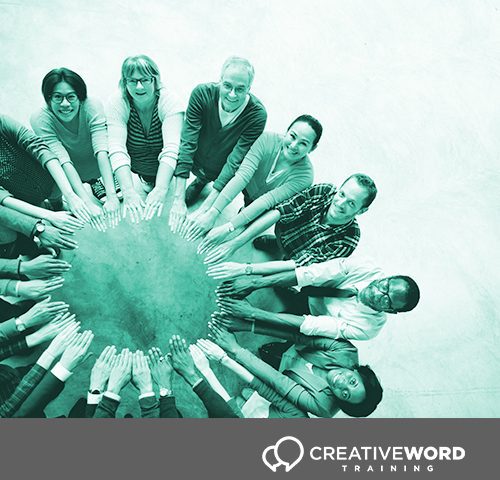
How to Give and Receive Feedback Effectively
November 15, 2020
Personal Branding Tips for Lawyers
December 8, 2020Good Lawyers are culturally aware; they communicate effectively with people from different countries or backgrounds, understand the unique perspective of their clients, and really ‘get’ what motivates their behaviour and desires.
Even subtle differences in location or upbringing can mean vast differences in attitudes, and understanding how to navigate these differences is key to being a better lawyer.
At Creative Word Training, we believe cultural awareness is paramount to a successful international business and have years of experience offering training solutions to corporate clients.
Our unique position as a market leader in legal, financial and leadership training has given us insights into many cultures and different perspectives, so we’d like to share some of our top tips for improving cultural awareness with you here:
Little Cultural Differences, Large Changes
The first thing to point out when considering cultural awareness is that little differences in attitudes, lifestyles, perspectives, background, education, and so on, can make a large difference in the business world.
It is often easy to assume we know what someone is getting at, what they are thinking or feeling, but until we take the time to find out for sure, we are just making an assumption, and it may not be an educated guess.
For instance, when in a business meeting with clients from the Middle East, it is highly likely that the meeting will be interrupted at some point, or an attendee will take an incoming phone call. Don’t assume this to mean they are not attentive or serious about the meeting, it is just the way things are often done in the Middle East. Business is personal to Arabs, so home life and other family obligations can often run into business dealings.
If you are working with a client from a different culture or country, it is well worth putting in some additional research time to find out how they operate at a business level, what drives them and what they expect of you in return.
Conditioning and Cultural Awareness
No matter how well-travelled we are, or how in-tune we feel ourselves to be with other people, there is no escaping the conditioning of our native culture.
This conditioning might appear in the form of our approach to work, our perception of time and punctuality, how we greet others for the first time, or even acceptable topics of polite conversation with clients.
This conditioning in itself is no bad thing – it is what makes us unique, interesting and diverse but it can affect how we relate to others and in turn, how they relate to us.
This conditioning also informs our unconscious biases.
Biases relating to our unconscious categorization of gender, race, disability, sexuality, profession, and so on, are not impossible to overcome but until we learn to recognise them, we cannot address them, and they will continue to affect our relationships with friends, colleagues and clients.
Learning to understand our unconscious bias is the first step towards cultural awareness and being able to empathise with and fully comprehend our clients.
Once we can better understand our clients, we are better placed to help them achieve their aims and resolve their issues.
New Differences in the Same Culture
With the Covid-19 pandemic there has been an interesting difference in behaviour, even from those within the same culture and community.
For instance, communities which once operated at a cohesive level are now divided on matters such as, appropriate behaviour in public (linked to safe distances, the wearing of face masks, and so on) or preferred method of communication (linked to those shielding or protecting vulnerable family members).
Clients who are shielding will not want to engage in face-to-face meetings, may appear to be overly-protective, or conversely, extremely disengaged, and before we make assumptions about their behaviour, we should find out the cause.
Communication, in the throes of Covid-19, may be altered for the foreseeable future, even among those community groups we would not normally expect to vary.
Remain open and aware of new expectations with regard to appropriate behaviour, and remember that everyone’s situation is different.
At the root of cultural awareness is a passion for understanding, compassion and empathy.
Time spent researching a client’s background, their beliefs, motivations and experiences will be well spent as it improves your understanding of their position and makes you a better advocate.
If a client acts in a way you don’t understand, try not to judge. Ask for clarification, find out what they expect from you and your representation, and discuss issues with them openly, at their level.


